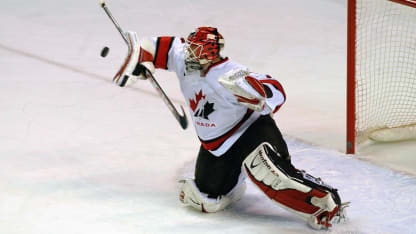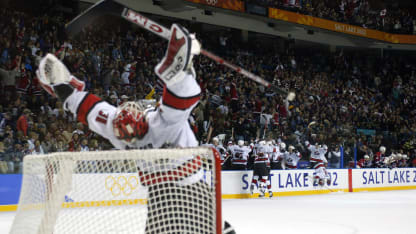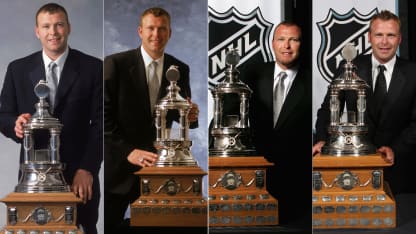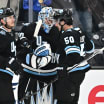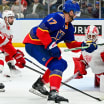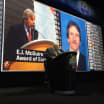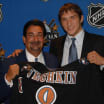"Once Marty got the net, I knew his history and I knew him well enough that it was going to be tough for somebody to get the net from him," Gretzky said. "His reputation preceded him. As an organization, a management team and coaches, we knew what we had in him. I had just recently retired, so I played a lot against him and I knew firsthand how good he was. And he had the credentials to back everything, so we were definitely solid in net from every direction."
Chris Pronger, a defenseman for Canada at the Salt Lake City Olympics, said the goalie switch was a must at the time, and the fact they were getting Brodeur was settling to the rest of the team because of his experience.
"Marty was in the prime of his career and had already won the Stanley Cup twice, so it wasn't like he hadn't been in pressure situations," Pronger said. "I remember I was on the ice, it's 2-1 for us against the U.S., and [Brett Hull] gets a one-timer on the power play and I'm like, 'Oh crap, it's in.' [Brodeur] somehow gets across and gets his foot on the post to stop it. It was like, 'Holy!' The final score was 5-2, but it was 2-1 at that point, and I think that sealed the door on them. We immediately turned around to make it 3-1."
Pronger said Brodeur's ability to play the puck was the biggest difference-maker for Canada.
"It just adds another element to your team and allows you the ability to stand up more because you don't have to worry about going to get the puck, he's already getting it," Pronger said. "I'm sure the [New] Jersey defensemen over the years would tell you that he was like a third defensemen back there. He was playing the puck, stopping it, setting it up. [Joseph] was actually good with the puck too, but he was nowhere near as good as Marty. It just gave us another dynamic."
